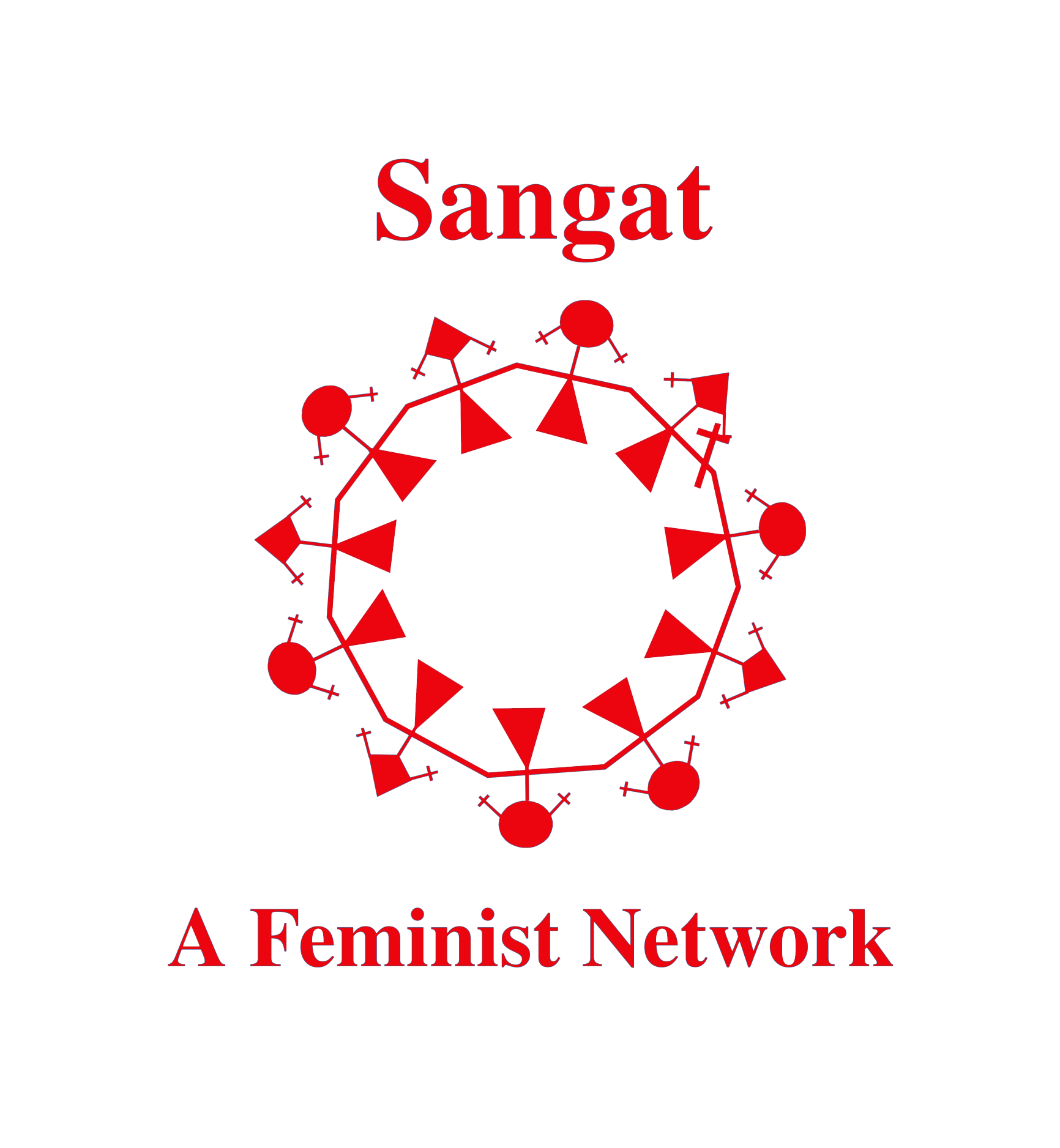About Us
VISION & HISTORY
In April 1998, the FAO-NGO a Programme and the Institute of Development Policy Analysis and Advocacy, Bangladesh, organized a workshop of gender trainers in Koitta, Bangladesh. It drew an overwhelming response from women and men from various countries. Over the course of the workshop, participants discussed and deliberated various issues, shared their respective experiences and opinions, and came to a unanimous conclusion—the space for transformatory gender work was declining steadily. That the need to create a network gender activists and trainers was both urgent and critical was strongly felt and articulated by the group. Sangat was born out of this realization. In a way, it is the continuation of the FAO-NGO Programme which worked for 25 years and was coordinated by Kamla Bhasin during its entire lifetime.
Though Sangat was born out of a realization to create space for transformatory gender work, over the years however, Sangat has outgrown its name, along with its mandate.
The network could not afford the luxury of focusing only on the issue of gender and women. Even though these subjects span a broad area of concern with clear linkages across other related concerns (poverty, sustainable development, livelihoods, to name a few), Sangat’s team and partners could not be mere bystanders to other raging contemporary debates and issues. Various countries have been gripped by increasing civil and economic unrest. The war in Sri Lanka, terror attacks in India, turmoil in Bangladesh, violence in Pakistan with Taliban’s stronger foothold have all further rocked the foundations of peace and friendship within and between countries. Fundamentalist responses against non-mainstream or alternate political and economic ideologies, backlash against women and the LGBT (lesbian, gay, bisexual and transgender) community also seem to have taken root. Intolerance towards other faiths has particularly seen horrific displays.
It is no longer possible to look at issues of development and women’s empowerment in isolation from issues of militarization, increasing communal and ethnic violence, religious fundamentalism, violation of human rights and democratic norms and practices, ecological degradation, economic recession, the impact of rampant privatization, the increasing clout of the market forces, globalization and the role of MNCs in shaping our policies. These forces act in collusion, to redefine and further constrain women’s spaces and roles, increase their burden and push them away from participation in social, political and economic processes. They also reinforce existing patriarchal institutions, relationships and values in ways which we are only beginning to comprehend. It is becoming very clear that the present paradigm of development can only further marginalise and disempower disadvantaged women and their families.
All this necessitates a major rethinking and restructuring of the vision, objectives and strategies of development, so as to build a new paradigm. This new paradigm should place people at its centre and should work in harmony with nature. Such a vision of development, which is now being articulated by more and more people all over the world (for example, by the World Social Forum events and processes), is guided by values of equality, justice, cooperation, peace, diversity, democracy and decentralisation. Such a paradigm will also challenge and counter the processes which marginalise women and the poor. This new vision demands that women and other marginalized groups be empowered not to adapt to or serve the present system but to challenge it. Along with this, it also calls for changes in the structures, approaches and ways of functioning of all actors and agencies to make them more participatory, egalitarian, decentralised and gender-just.
Sangat believes that this paradigmatic shift is only possible through a regional perspective and cross border understanding, solidarity and cooperation. Instead of the earlier emphasis on “Declaration of Independence”’ what we need today is “Declaration of Interdependence”. Genuine development, democracy and peace are only possible if we develop a identity and perspective. Developing and strengthening regional/cross border perspectives, programmes and cooperation has always been expressed through Sangat’s favourite slogan “I am not a wall that divides. I am a crack in that wall”.
Over the last decade, there have been a large number of interventions by governments as well as by non-governmental development agencies and people’s movements, to improve the situation of socially, economically and politically deprived and disempowered women. Such volatile state-of-affairs in the region have forced concerned individuals and civil society organizations to move out of their narrow realms of interest and work, and join hands with those who question the prescribed models of development, security and talk of peace, harmony and other progressive agendas.
Sangat’s team and partners too felt compelled to introspect. Its network of women peace activists and trainers decided to broaden the focus of activities to include work on human rights, justice, peace and democracy. Cross-border dialogues through people-to-people contact, peace delegations, cultural exchanges, joint signature campaigns and so on have been arranged, facilitated and co-organised by Sangat in the recent past.
WHO WE ARE
The word ‘Sangat’, in some languages, means a gathering/community of like-minded people for a good and just cause.
Sangat was created in April 1998 at a workshop of gender trainers, held in Bangladesh and organized by the FAO-NGO Programme. In a way, it is the continuation of the FAO-NGO Programme which worked for 25 years and was coordinated by Kamla Bhasin.
Sangat was created in realization of the fact that the space for transformatory gender work was steadily declining. The need to create a network of gender activists and trainers was urgent, critical, and strongly felt and articulated. The belief that understanding, peace and co-operation are essential for meaningful progress also prompted the formation of this regional alliance.
Genuine development, democracy and peace are only possible in the region if we develop a identity and perspectives. Sangat’s mandate has therefore been focused on developing and strengthening regional/cross border perspectives, programmes and cooperation through its activities and programmes.
